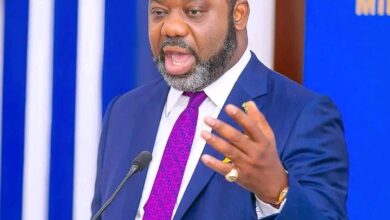
In a captivating video interview with Nana Yaw Bediako, a prominent figure in Ghana, he boldly stated that if elected as the president in the upcoming 2024 elections, Ghana will no longer rely on importing phones from other countries. Instead, he envisions a future where Ghana becomes a hub for technological innovation, harnessing its own ingenuity to manufacture phones of all brands.
Bediako’s ambitious plans not only speak to his commitment to economic independence, but also highlight his determination to foster a culture of entrepreneurship and invention within Ghana. By encouraging the local population to develop technology and share ideas, he envisions a society where Ghanaian talents and resources are used to drive its own technological advancement.
The implications of this vision are vast. Not only will it drastically reduce Ghana’s reliance on foreign imports, but it will also create job opportunities and promote economic growth at the local level. The manufacturing of phones within Ghana will lead to the establishment of factories, supply chains, and a robust technology sector. The benefits will ripple throughout the nation, ultimately improving the standard of living for its citizens.
Captured by the esteemed TV3, the video interview captures Bediako’s captivating message, delivering it to a wide audience across the country. It serves as a call to action, urging Ghanaians to embrace their potential and rally behind a future where they have the expertise to create and manufacture their own phones.
If Bediako’s bold promise comes to fruition, it will not only reshape Ghana’s technological landscape, but also position the nation as a global player in the manufacturing industry. The potential for Ghana to export its locally made phones to other countries can propel its economy to new heights, further solidifying its status as an emerging powerhouse on the international stage.
Nana Yaw Bediako’s vision of a Ghana that manufactures its own phones signifies a monumental shift in the country’s economic and technological landscape. By championing local talent, fostering innovation, and building a foundation for self-sufficiency, his leadership would transform Ghana into a beacon of ingenuity, creating a brighter future for all its citizens.







